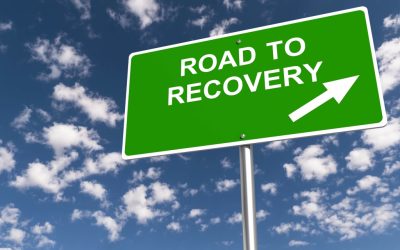How to Recognize an Alcohol Addiction
Content
This spectrum helps diagnose whether an AUD is mild, moderate, or severe. Having two or three of the above criteria would be a mild AUD; four to five would be a moderate AUD, and six or more indicates a severe AUD.
Many drinking problems start when people use alcohol to self-soothe and relieve stress (otherwise known as self-medicating). Getting how to recognize alcoholism drunk after every stressful day, for example, or reaching for a bottle every time you have an argument with your spouse or boss.
Drinking Levels Defined
If you think a loved one may be addicted to alcohol, learn the warning signs and symptoms to know when you should seek help. If you spot signs of alcoholism in a loved one, encourage them to seek help. You can research available resources in your area where they can connect with support.
Behaving in ways that are out of character when drinking. The sober self and drinking self tend to be very different from each other. Let your child know what behavior you expect — and what the consequences will be for not following the rules. Talk openly with your child, spend quality https://ecosoberhouse.com/ time together and become actively involved in your child’s life. They may not have enough money to take you out, but they always have enough to buy alcohol. They may even put off buying something they need or put off other financial obligations if it means they can’t buy alcohol also.
Take control of your life
If you have felt yourself drinking more and are feeling uneasy about it, read on to learn how to recognize a drinking problem and adjust your habits. Recognizing the signs of a drinking problem and the potential for high-functioning alcoholism in a loved one can aid in getting help before a major life-altering event. Contrary to popular belief, a person does not have to hit rock bottom to seek help. There are several things you can do once you realize a problem exists. Heavy drinking can cause increased fat in the liver and inflammation of the liver .

The first step in recovery from an alcohol use disorder is seeking an alcoholism treatment programfrom a rehab center that offers exemplary clinical services and compassionate care. The psychological effects of alcohol are immediately recognizable after a person drinks. Individuals may repeat themselves and not show their familiar level of good judgment.
Signs & Symptoms of Alcoholism (Physical, Mental & Behavioral)
5 Risks When Drinking Alcohol In The Summer SunSummer is a wonderful time to go outside and enjoy outdoor activities. However, when these activities include alcohol, it can be a dangerous mix. To reach a more informed conclusion, some doctors use questionnaires to evaluate a dependence on alcohol as well as behavior when it’s consumed. Continuing to abuse alcohol despite the presence of a psychological or physical problem that is probably due to alcohol use.
We are ready and willing to help bring healing to your family through addiction treatment and recovery. After an individual engages in excessive drinking, their body develops a tolerance for alcohol. This process occurs when the person needs to consume more alcohol to feel that same effect they once felt. Many individuals don’t feel they have an issue due to the lack of getting drunk every time they drink.
Alcohol use disorder
When an individual decides to consume drinks and foods that are high in sugars, it can quickly lead to weight gain. Indeed, we can’t control where the extra weight ends up in the body, but it normally accumulates in the abdominal area. The 11 factors mentioned above address the psychological and physical components of an AUD. The distinction between psychological addiction and physical dependence is a pivotal difference to understand. Our mission is to provide empowering, evidence-based mental health content you can use to help yourself and your loved ones.
Alcoholism is a psychological brain disorder and chronic condition that results in an inability to stop drinking, even if it’s causing problems in your life. For many, alcohol is used occasionally as a way to celebrate, relax, bond and socialize with friends and loved ones. It’s a toast to wedding nuptials or an anniversary, or a shared drink with a loved one to kick off the weekend. They drink in the mornings, or excessively at lunch, or at other periods of the day when other people do not.
You should try to highlight the emotional distress the person’s drinking has caused you and others, as well as the concern you have for the person’s wellbeing and health. As drinking is so prevalent in Western society, the ramifications and dangers are not always immediately visible. Many of us have experienced hangovers in our lives or have faced a difficult day at work following a night of heavy drinking. While this is usually rare and easily overcome, those who abuse alcohol may find that they experience these negative effects more frequently. This can lead to serious health implications as well as damaging other aspects of life, and for some, it may lead to alcohol dependence or alcoholism. No matter how minor a drinking problem may seem, alcohol abuse symptoms should not be ignored.
- An individual who is experiencing an alcohol use disorder may also hide alcohol around the house or at work.
- Studies show that about 1 in 4 people who drink in excess of these limits already has an Alcohol Use Disorder and that the rest will likely develop a problem over time.
- We also offer specialized treatment for veterans struggling with alcoholism and for licensed healthcare professionals whose careers may have been impacted by their alcohol use.
- Pretending that nothing is wrong and hiding away all of their fears and resentments can take an enormous toll.
- Alcoholism symptoms can encompass health effects, such as bad hangovers and alcohol-induced accidents, as well as social effects, such as doing or saying regrettable things while intoxicated.
- One symptom may snowball into another, fueling additional problems down the road.


